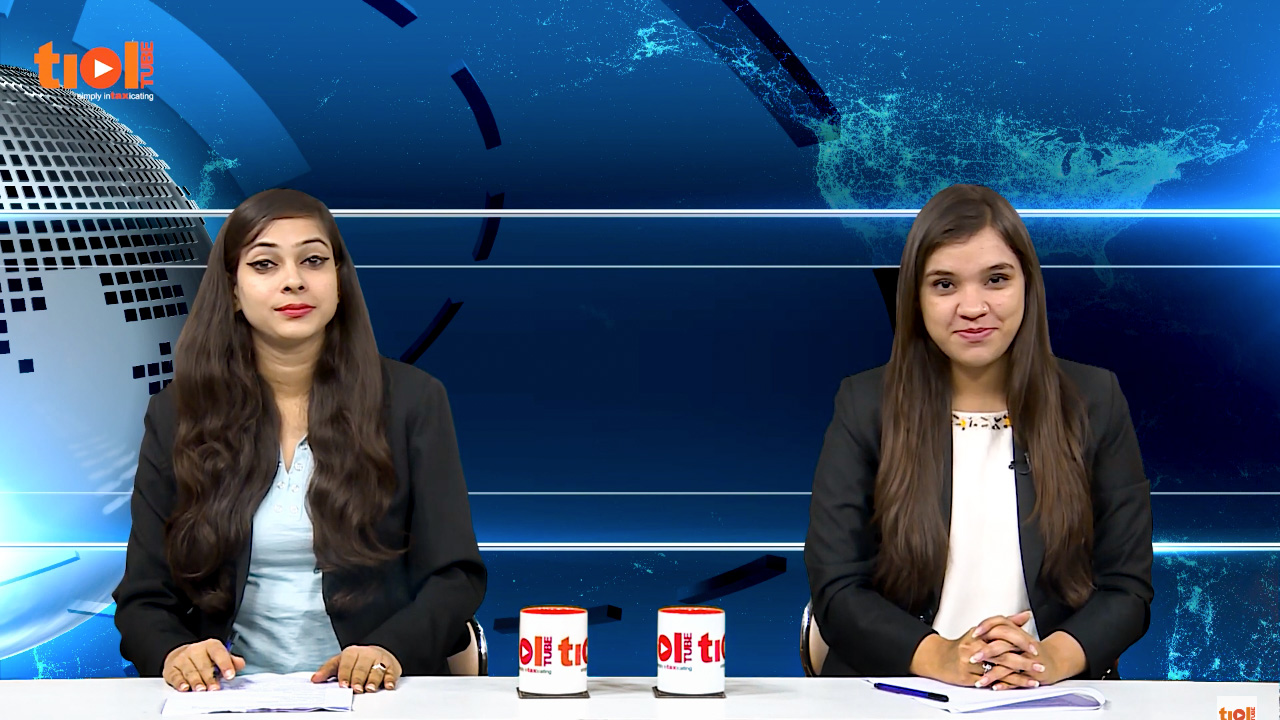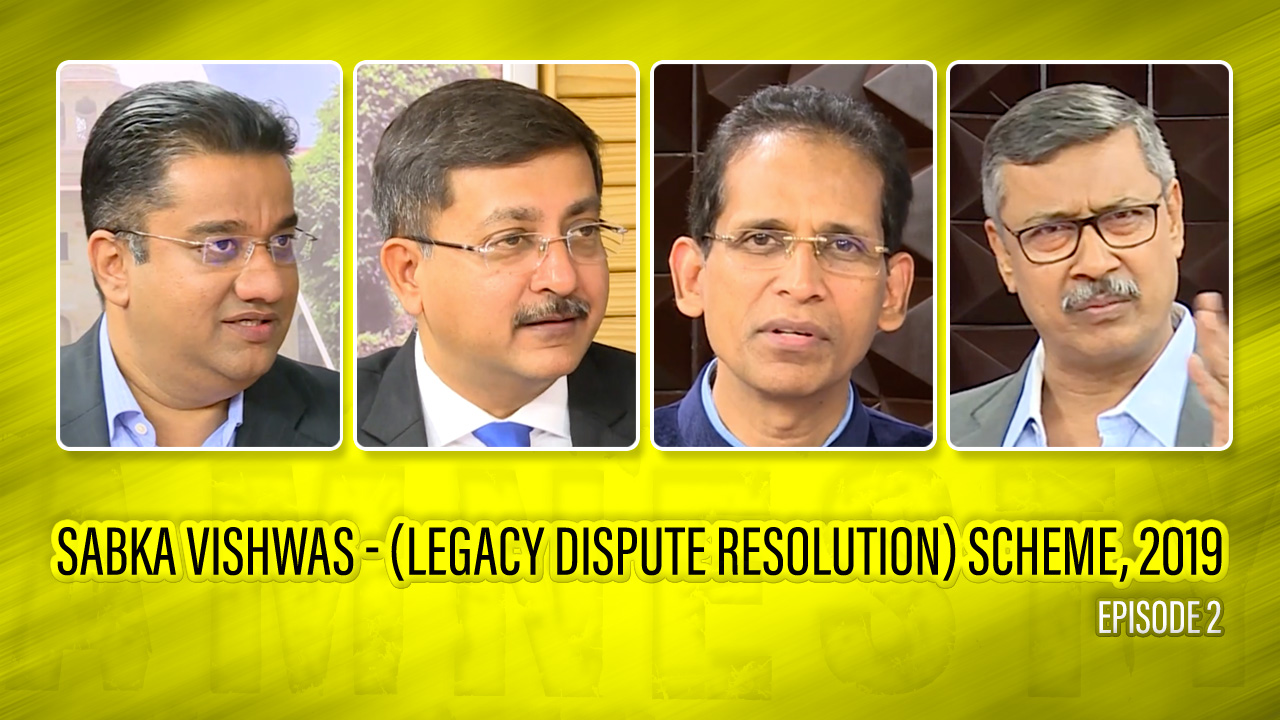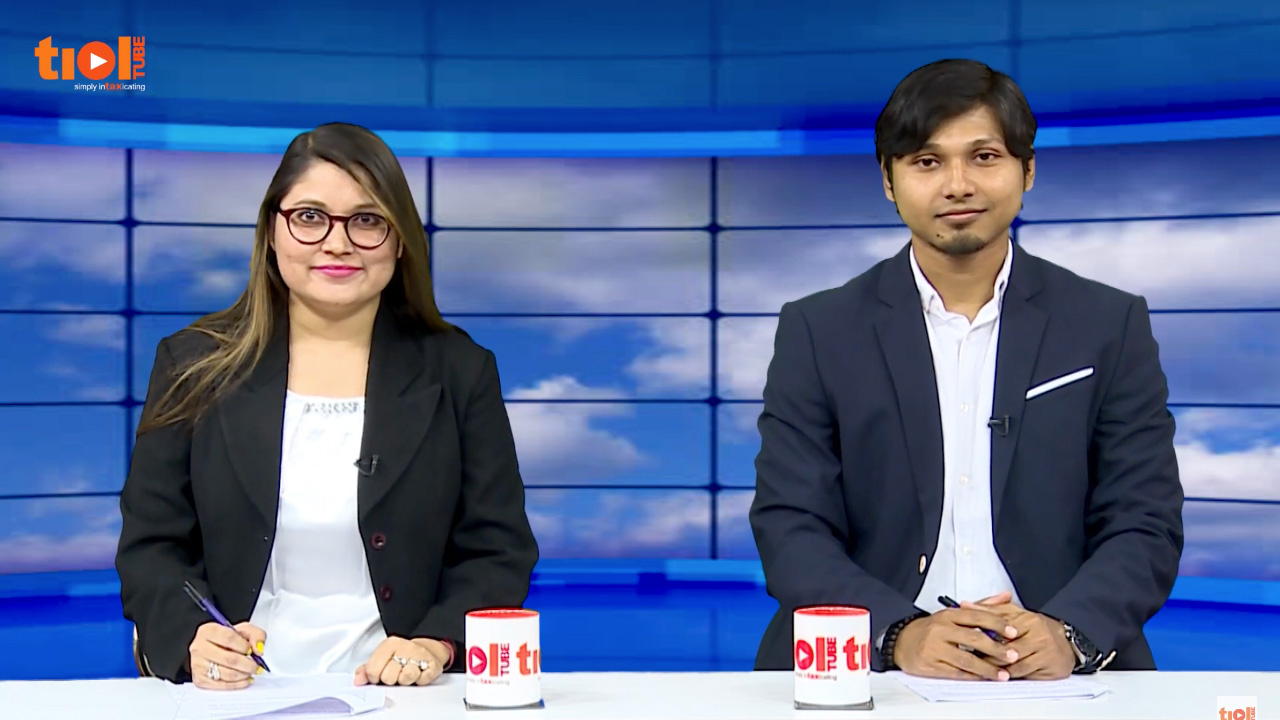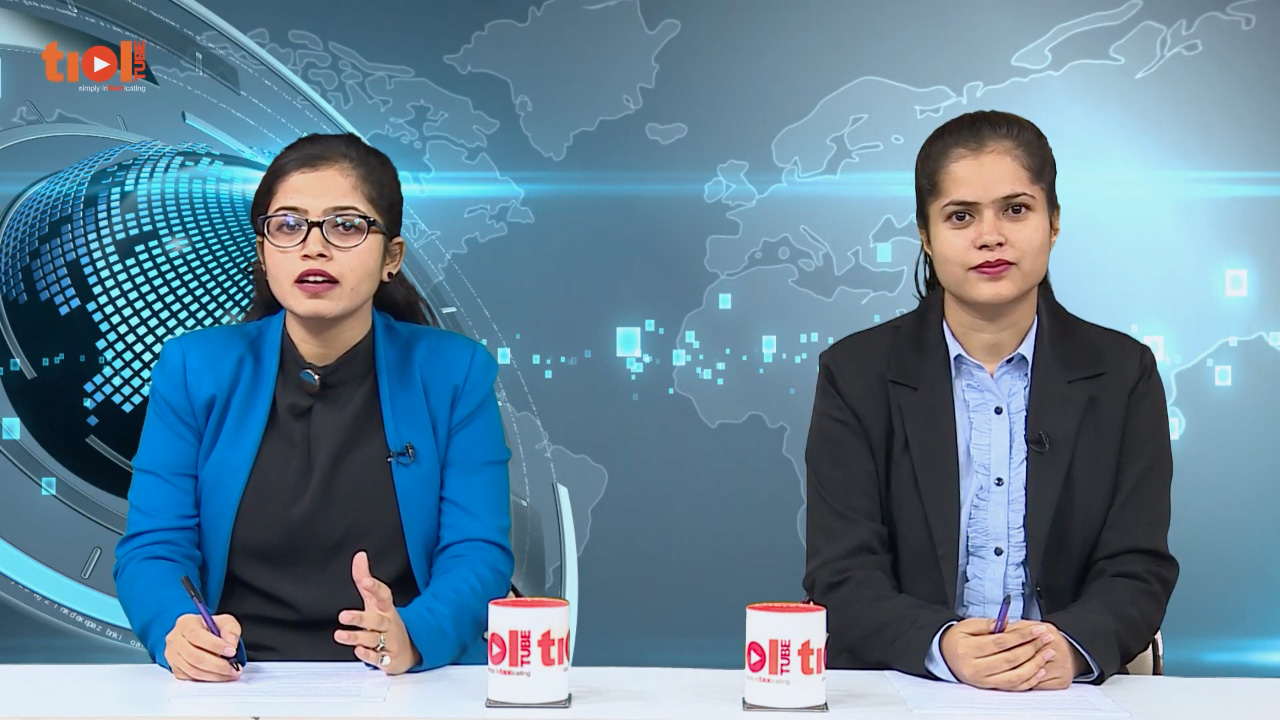|
SERVICE TAX
2019-TIOL-3188-CESTAT-DEL
Mikuni India Pvt Ltd Vs CCGST
ST - The issue involved in this appeal is regarding the applicability of ST on deputation/secondment of employees from a group company in Japan to the appellant in India - the period in dispute is from 1.4.2014 to 31.3.2015 – the SCN proposed demand of ST under "Manpower Supply Services" under a reverse charge mechanism - demand confirmed, penalty imposed, therefore, appeal before CESTAT.
Held: Issue involved in this appeal is similar to the issues involved in the appeal that came up for decision before the Division Bench of the Tribunal in the case of India Yamaha Motor Private Limited [Service Tax Appeal No.53046 of 2016 decided on 28.6.2019] -the Division Bench held that neither during the pre-negative list nor post negative list, ST could be levied on deputation of employees from a group company in Japan to the appellant in India - thus, for the reasons mentioned in the aforesaid judgement, it is not possible to sustain the impugned order - it is, accordingly, set aside and the appeal is allowed : CESTAT [para 11, 12]
- Appeal allowed: DELHI CESTAT
2019-TIOL-3187-CESTAT-MAD
Commissioner Corporation Of Madurai Vs CCE & ST
ST - Application for out of turn hearing - As the matter involves demand raised under RIPS & similar issues were listed for hearing, the present matters be listed along with them: CESTAT
- Applications allowed: CHENNAI CESTAT
2019-TIOL-3186-CESTAT-AHM
Nandesari Industries Association Vs CCE & ST
ST - Appellant is an industry association set up for the activity of treatment and recycling of effluents and solid wastes - the Revenue has demanded ST under the Club or Association Service – demand confirmed, hence appeal to CESTAT.
Held - Club and Association Service for the purpose of treatment of effluent has been exempted by section 145 of Finance Act, 2012 – in view of the above section, the Club or Association Service set up for a project for treatment and recycling of effluents and solid wastes is exempted subject to condition that the same is set up with the Financial assistance by the Central Government or a State Government - as per the sanction letter dated 9.9.2010 issued by the Industry Commissionerate, it is clear that the project was financially assisted by the State Government of Gujarat - accordingly, the Service is clearly exempted under section 145 - the impugned order is set aside, the appeal is allowed : CESTAT [para 5, 6, 7]
- Appeal allowed: AHMEDABAD CESTAT
2019-TIOL-3185-CESTAT-ALL
CCT Vs Viami Business Solution Pvt Ltd
ST - The demand was originally confirmed against assessee by Original Adjudicating Authority in respect of services received from foreign based companies under category of "Consulting Engineering Services" on reverse charge basis - The appellate Authority observed that though the assessee was required to pay said service tax on reverse charge mechanism but the tax paid by him was immediately available to assessee as Cenvat credit, which they could have used for payment of service tax on their output services - As such, he has observed that the entire situation is Revenue neutral and there is no loss to the Revenue - Admittedly, the service tax required to be paid by assessee was available to them as credit - Further, it seems that assessee was providing output services, which were also taxable - During period in question, they paid service tax on output services by way of cash - The Appellate Authority has gone to the figures of the cash payment of tax and by comparing the same with their liability to pay tax, has come to the right conclusion of Revenue neutrality - Reliance by the Appellate Authority on Tribunal's judgment in case of Jet Airways (I)) Ltd. - 2016-TIOL-2072-CESTAT-MUM is appropriate - The said decision also stands upheld by Supreme Court - As such no infirmity can be found in impugned order of Commissioner (A): CESTAT
- Appeal rejected: ALLAHABAD CESTAT
CENTRAL EXCISE
2019-TIOL-3184-CESTAT-DEL
Nalwa Steel And Power Ltd Vs CCE & ST
CX - Whether denial of input credit on the services of Tour and Travel by Chartered plane for Mrs.Salu Jindal, who was a whole-time Director, is proper.
Held: SCN dated 04.04.2014 is issued pursuant to audit and issue of audit report FAR No.196/C.Ex./2010-11 and further FAR No.324/CX/2010-11 relating to the period April, 2009 to May, 2011 -admittedly, the transactions are properly backed by invoices and recorded in the ordinary course of business -admittedly, the statutory returns have been regularly filed -there is no case of mis-declaration in the returns -thus, in the absence of conditions like suppression of facts or contumacious conduct, extended period of limitation is not available to Revenue - thus, the appeal is allowed with consequential benefits by setting aside the impugned order: CESTAT [para 20, 21]
- Appeal allowed: DELHI CESTAT
2019-TIOL-3183-CESTAT-MUM
Kisanveer Satara Ssk Ltd Vs CCGST & ST
CX - Appellant is aggrieved by the impugned order arising from challenge to O-I-O which disallowed cenvat credit of Rs.5.41 lakhs, while allowing credit of Rs.40,393/- for not having availed credit within six months from the date of issue of invoice, the disallowance of cenvat credit of Rs.3,117/- availed on spare parts of capital goods in the year in which the goods had been received and imposing of penalty of Rs. 5.44 lakhs corresponding to the disallowed cenvat credit under section 11AC of CEA, for limiting the relief to reduction of disallowance to Rs.1.40 lakh, relating to such as had been availed more than one year after the date of issue of invoices, and thus ordering recovery of Rs.1.44 lakh with penalty of like amount under section 11AC of CEA.
Held: CENVAT credit pertains to the period from September 2014 to March 2015 for which SCN was issued on 8.3.2016 - it is claimed that the amount in dispute pertains to the period for which normal period of limitation could not have been invoked on credit availed between 30.9.2014 and 31.1.2015 - it is seen from the records that there is no evidence of suppression or mis-representation on the part of the appellant and that a major portion of the demand had already been set aside on the finding that availment was covered by the eligible notification and, therefore, the portion that was confirmed could not have said to have arisen on account of suppression or mis-representation – respectfully following the decision of the High Court of Madhya Pradesh in the case of ZYG Pharma Pvt. Ltd. , the impugned order is set aside and the appeal allowed : CESTAT [para 4, 5]
- Appeal allowed: MUMBAI CESTAT
2019-TIOL-3182-CESTAT-AHM
Mohit Industries Ltd Vs CCE & ST
CX- Appellants, engaged in the manufacture of Grey Fabrics, received warping machine in the month of November 2014 on which cenvatcredit was availed -from November 2014 up to July, 2016 the appellant was availing the exemption notification 30/2004-CE dated 9.7.2004 - from August, 2016 they started paying duty by opting for the concessional exemption notification 29/2004-CE dated 9.7.2004 - the case of the department is that at the time of receipt and installation of machines, the appellant was availing exemption notification no.30/2004-CE -as per rule 6 (4) of the Cenvat Credit Rules, 2004 [CCR] if the capital goods is used exclusively for manufacture of exempted goods, the cenvatcredit is not admissible -the contention of the department is that since at the time of receipt of capital goods, the appellant was manufacturing exclusively exempted goods with the help of the said warping machine, they are barred from availing the cenvatcredit on such capital goods– appeal to CESTAT.
Held: Although rule 6(4) was amended by notification 13/2016-CE (N.T.) dated 1.3.2016, but the amendment is by way of substitution of rule 6(4) - as per the above substituted Rule, it is clear that the bar on availing the credit in respect of capital goods used in manufacture of exempted goods shall apply only if the capital goods are used for two years from the date of installation/commencement of production -as per the facts of the present case, though the appellant received and installed the capital goods in their running unit in November, 2014 but before completion of two years, in August, 2016 the capital goods was used for manufacture of goods which were cleared on payment of duty, availing the exemption notification 29/2004-CE -therefore, the capital goods was not used continuously for two years for manufacture of exclusively exempted goods -since the amendment is by way of substitution, it will be applicable from the retrospective effect -this view is supported by decisions in the cases of Zile Singh [2004 (10) TMI 553 (SC)] and Indian Tobacco Co. [2005 (8) TMI 113 (SC)] - it is also observed that the Tribunal in the cited judgments under the same set of facts and dispute related to notifications 29/2004-CE and 30/2004-CE, held that even though initially 'Nil' rate of duty exemption under notification 30/2004-CE has been availed and subsequently, notification no. 29/2004-CE availed and duty paid, the cenvatcredit on capital goods is admissible–in view of the above, cenvatcredit on the capital goods is admissible -accordingly, the impugned order is set aside, appeal is allowed : CESTAT [para4, 5]
- Appeal allowed: AHMEDABAD CESTAT
2019-TIOL-3181-CESTAT-ALL
Gulshan Polyols Ltd Vs CCE
CX - The dispute is as to whether the assessee is entitled to Cenvat Credit of Service Tax paid on Outward Transportation of their final product i.e., from the place of removal to their customer's premises - The assessee was made to reverse the credit availed by them and they subsequently filed the refund claim of said service tax, which stands rejected by Lower Authorities on merits by observing that such outward transportation cannot be considered to be an input service - Issue is no more res-integra and stands settled by Supreme Court's latest decision in case of Vasavadatta Cements Ltd. - 2018-TIOL-90-SC-CX wherein it is held that such GTA Services utilized for outward transportation of manufactured product would be cenvetable input services for the period pre 01.04.2008 when the expressions were changed to "upto the place of removal" - The legal issue stands decided in favour of the assessee - As Tribunal have already held in favour of the assessee, they are entitled to avail the credit of the same in their cenvat credit account by reversing the debit entry, made by them: CESTAT
- Appeal allowed: ALLAHABAD CESTAT
2019-TIOL-3180-CESTAT-ALL
IT Enfraservices Pvt Ltd Vs CCE
CX - The assessee is an Infrastructure Service Provider and has its unit Software Technology Park of India - The Director Software Technology Park of India certified that the proposed items for import given in the list annexed to such letter were required for installation and use by the unit under the Infrastructure Providers Scheme and was covered by the Exemption Notification No.153/93-Cus - Such goods were authorized by the Inter Ministerial Standing Committee - The proforma invoice with details was annexed with the letter, based on which the Revenue certified that the assessee executed B17 bond - Identical certificates were issued for procurement of items from indigenous manufacturers - The assessee was permitted to import goods free of duty as per Notfn No 153/93-Cus and also obtain goods from the indigenous manufacturers after executing a B17 bond to such effect - The assessee procured goods from three manufacturers without payment of Excise duty - The Revenue opined that such procurement of goods was not in accordance with the provisions of Notfn No 153/1993-Cus or the STP scheme and in absence of any exemption to indigenously-procured goods, duty is payable on them - As the assessee entered into B17 bond and undertook to pay duty in future, SCN was issued, raising duty demand - On adjudication, the duty demands were confirmed along with interest and identical amount of penalty.
Held - The procurement of goods from indigenous manufacturers is not covered under any exemption notification - Such manufacturers cleared the goods without payment of duty based on representations made by the assessee by showing the certificates and intimating the manufacturers that the goods were entitled to be received by them without payment of duty - Otherwise, the goods are liable to duty in the absence of any exemption notification to such effect - In such a scenario, the duty liability would fall upon the assessee in terms of the B17 bond executed by it - The limitation would not apply as it is also recorded in the bond itself that all assessment would be provisional - Hence there is no merit in the assessee's appeal - However, the demand raised against the assessee is only for an amount of Rs 40 lakhs - As such, the assessee's liability would be restricted to the amount covered by the B17 bond - Hence the demand merits being restricted to such amount - Further, the procurement of goods free of duty were based on certificares issued by the authorities and does not reflect upon mala fide of the assessee to justify any penal action: CESTAT
- Assessee's appeal dismissed: ALLAHABAD CESTAT
2019-TIOL-3179-CESTAT-BANG
Minera Steel And Power Pvt Ltd Vs CCT
CX - Appellants are manufacturers of sponge iron and MS billets and are availing the cenvatcredit under the Cenvat Credit Rules, 2004 [CCR] – a SCN dated 5.12.2017was issued to the appellant demanding amount equal to 6% of the sale of electricity sold for the period from November 2015 to March 2016 -it was alleged that the appellants have used common input/services for manufacture of electricity which is an exempted product -further, the appellants have failed to maintain separate accounts as provided under rule 6 of CCR and accordingly liable to pay amount equal to 6% of the value of electricity sold outside the factory – demand confirmed, penalty imposed – on appeal, Commissioner (Appeals) dismissed the appeal, therefore, assessee in appeal before CESTAT.
Held: In the appellant's own case - 2019-TIOL-511-CESTAT-BANG for the earlier period, this Tribunal has held that the appellants are not liable to pay 6% of the value of the electricity cleared by the assessee to the power distribution company – further, in the present case, the electricity was generated by use of the waste products and, therefore, rule 6 of the CCR is not applicable in view of the judgment of the Apex Court in the case of Hindustan Zinc Ltd. - 2014-TIOL-55-SC-CX and other decisions – further, coal ash/Dolo char is a residual waste arising out of the burning of coal which cannot be said to be a manufacture of final product – further, both the authorities have ignored the amendment introduced w.e.f. 1.4.2016 by addition of rule 6(3AA) which permits the assessee to reverse/pay proportionate cenvat credit relating to common input or attributable to input services and in the present case, the appellant is making use of this sub-rule and has paid the amount of Rs.11.23 lakhs along with applicable interest of Rs.4.86 lakhs vide various challans which satisfied the requirement of rule 6(3AA) -consequently, the demand of 6% of the value of electricity sold to the GESCOM is not sustainable in law and, therefore, the impugned order is set aside by allowing the appeal with consequential relief: CESTAT [para 6]
- Appeal allowed: BANGALORE CESTAT
2019-TIOL-3178-CESTAT-BANG
Wave Mechanics Pvt Ltd Vs CCT
CX - The assessee, a 100% EOU is engaged in manufacture and export of RF/Microwave components - They filed four refund claims seeking cash refund of unutilized CENVAT credit in terms of Rule 5 of CCR, 2004 r/w Notfn 27/2012-CE - Out of the total amount, cash refund to the extent of Rs.5,72,485/- has been sanctioned under Rule 5 while the balance amount of Rs.7,74,306/- has been rejected for cash refund - The goods were supplied by assessee to another EOU after coming into force of amendment in Rule 5 - With the insertion of Clause (1A) in Explanation 1 of Rule 5 of CENVAT Credit Rules effective from 1.3.2015 whereby export of goods means only those goods which are to be taken out of India to a place outside India which means that there has to be a physical export and for 'deemed export', cash refund is not permissible - The decision of the Mumbai Tribunal in case of Trimurti Plast Containers Pvt. Ltd. is squarely applicable in the present case - As far as rejection of cash refund by both the authorities is concerned, there is no infirmity and the said findings are upheld - The findings of the original authority that the amount of refund claim would lapse under Section 142 of Central Goods and Service Tax Act, 2017 is not tenable in law, since there was no dispute about the fact that at the time of filing of refund claim, the assessee had debited the whole amount in their CENVAT account as required by the then Notfn 27/2012 and when the GST was introduced, there was no amount lying in the balance in assessee's record - Further, provision to subsection (3) of Section 142 of Central Goods and Service Tax Act, 2017 is not applicable in the present case - The assessee is entitled to take re-credit of CENVAT for which they had filed the refund claims and the said amount will not lapse as per Section 142 of Central Goods and Service Tax Act, 2017 - Assessee is not entitled to cash refund but they are entitled to take re-credit of the same: CESTAT
- Appeals disposed of: BANGALORE CESTAT
CUSTOMS
2019-TIOL-2514-HC-DEL-CUS
Vos Technologies India Pvt Ltd Vs DRI
Cus - Petitioner seeks order quashing the directions given by respondent no.1 by email to respondents no. 2 & 3 to freeze the bank accounts of the petitioner - Bench notes that the background in which directions have been issued by respondent no. 1 are conspicuous by their absence and it is also not disclosed as to what has led to the said freezing of the bank accounts - Counsel for respondent DRI informed the Bench that the petitioner was arrested and there is an allegation of evasion of Customs duty to the tune of Rs.60 crores - Petitioner, however, submits that no disclosure of the background facts has been made since the issue is revealed and the petitioner is challenging the authority of respondent no. 1 in issuing such directions.
Held: When a Petitioner approaches the Court, invoking its extraordinary jurisdiction under Article 226 of the Constitution, which is discretionary in nature, it is imperative for the Petitioner to disclose all the relevant facts and circumstances which may have bearing on the exercise of such discretionary power and jurisdiction of the Court - non-disclosure of facts which have led to the freezing of bank accounts of the Petitioner, including the pertinent fact that he is accused of evasion of Customs Duty to the tune of Rs. 60 Crores and that he was arrested, are extremely relevant and material - In view of suppression of the relevant facts and circumstances by the Petitioner, Bench is not inclined to exercise the jurisdiction in this case - Petition dismissed: High Court [para 7 to 10]
- Petition dismissed: DELHI HIGH COURT | |








